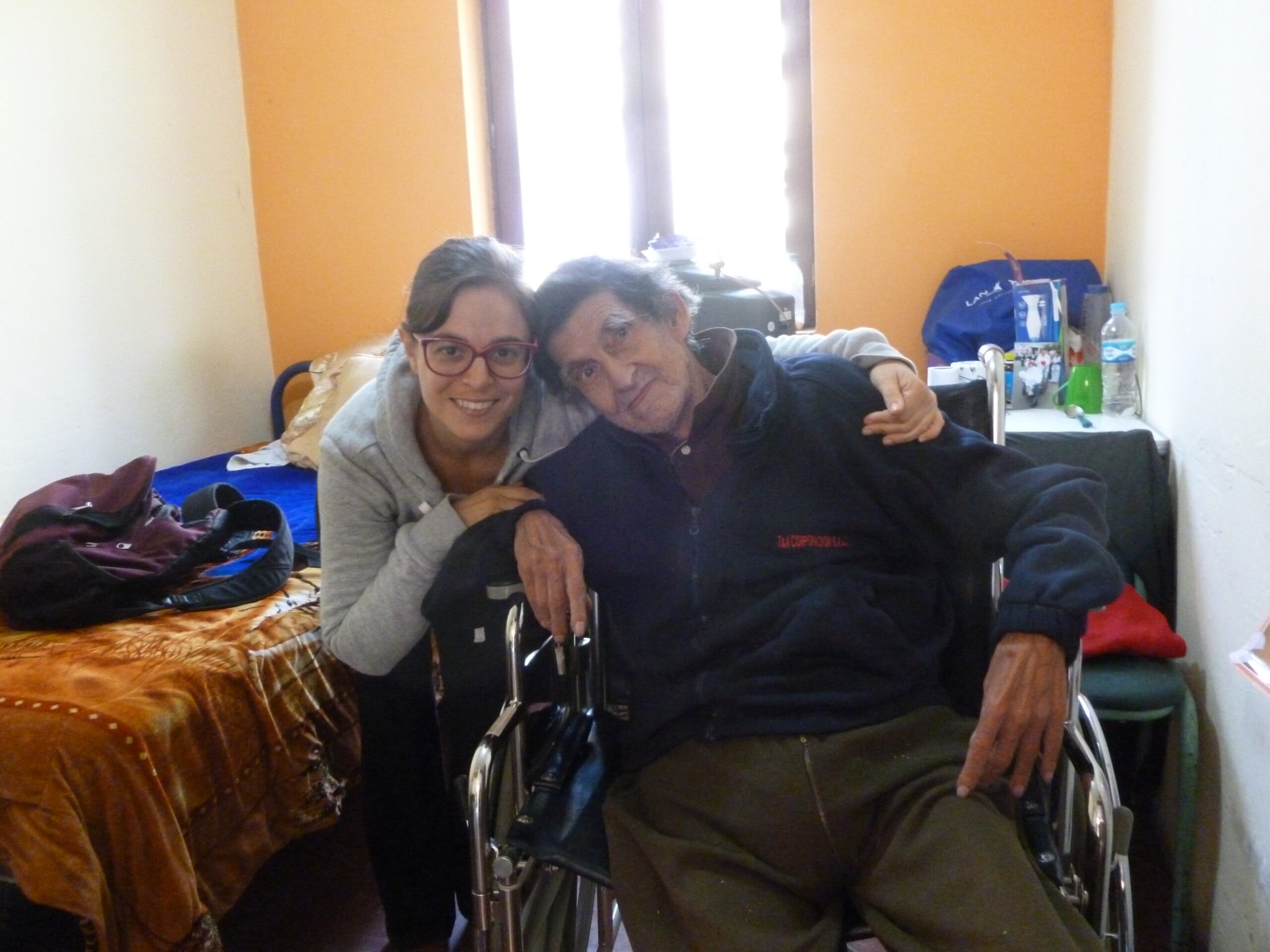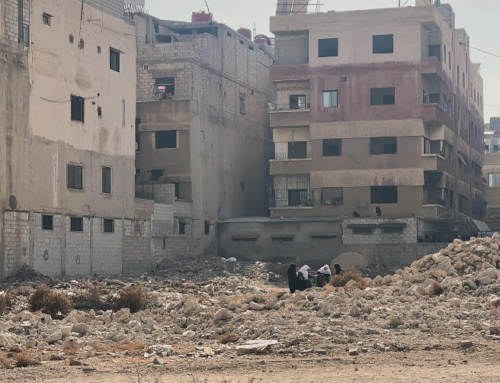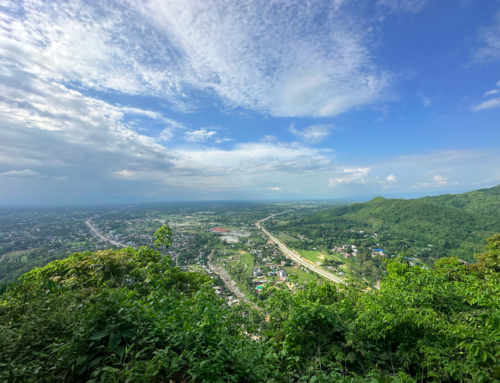I
My passion for writing has brought me this far. Today, that same passion places me, in both employment and financial terms, in a position of insecurity. Since my childhood, writing has been an exercise in creative atonement. I began writing poetry at the age of 14 and, when the time came to choose a university course, I did not hesitate: my inclination towards literature was unquestionable, a call that came from the innermost of my being. When I decided to major in Hispanic Literature as an undergraduate, however, I was faced with the harsh reality of my initial error. Like many of my classmates, I had thought that by pursuing an education in literature, I would be cementing my commitment to writing. We all thought that we would write. Yes. We’d write about whatever inspired passion in us, about what mortified us, about our fantasies and our most intimate desires. Naively, we thought that the major would teach us the techniques we needed to become writers, storytellers, or poets capable of conveying in the rawest and most dignified manner the nuances of the human experience. This was my first error. After our first semester of studies, my classmates and I realized that a literature course, at least in Peru in the 2000s, might prepare one to be an avid literary critic, but not a poet or a storyteller. This saddened me, but I remained steadfast in my commitment to the decision I had made to pursue that path and, upon completion of my university studies, I graduated with honors with a thesis on the figure of Jesus Christ in contemporary Peruvian poetry.
Religion was also a sphere in which, since early childhood, I had asked myself many questions and found many answers. At the age of 27, in the midst of a crisis of faith, I decided that I would study for a master’s degree in religion. Although my connection with religion during my adolescence and early adulthood was defined by faith and a belief in the teachings of Jesus Christ and the Catholic Church, my time at university had undermined many of the foundations of that faith. And so, I decided to reexamine my faith and to approach it in an academic, rational, and theoretical way. Not long afterwards, I was accepted into a master’s degree program in Religious Studies at Harvard Divinity School. I felt a sense of relief, because I thought I had found the place from which, as an academic, I would be able to put forward my ideas. At last, I had found a place where my voice would be heard. Or so I thought.
The experience of studying religion was wonderful. I read things that I had never imagined would cross my path. I learned a lot and forged friendships that have continued to this day. But I also realized something else; my intuition told me that this was not the place where I could fully articulate my voice, my thoughts, or my writings, and make an academic contribution. During the two years that I studied for my master’s degree, I encountered an inspiring professor, an anthropologist for whom writing presented no difficulties. For him, this was almost like a game because he did it with such plasticity, versatility, beauty and ease, that it seemed to cost him nothing to organize his arguments when writing articles, books, and smaller pieces that transformed all those who read them. His writing captivated me and, in parallel, so did his profession. I had discovered anthropology; somewhat late, yes, but thanks to that teacher, I realized that I had been wrong again. The religious sciences were not the sphere where I wished to express myself, and enter into conversation and debate with others. Once again, I had been mistaken, but I had gained the certainty that what I wanted was not just to walk among books. Ethnographic work involves human contact, something that I greatly missed in my undergraduate years studying literature and, later, during that master’s degree to which, perhaps —just perhaps—I had arrived more out of rebellion against God than out of conviction.
II
Clifford Geertz argues that one of the main aims of ethnography is to offer a “thick description” to characterize the intentional, communicative, interpretative meaning of the human behavior (Luhrmann 2015, 291). He states, in The Interpretation of Cultures (1973), that “what the ethnographer is in fact faced with is a multiplicity of complex conceptual structures, many of them superimposed upon or knitted into one another, which are at once strange, irregular, and inexplicit, and which he must contrive somehow first to grasp and then to render” (10). In other words, for Geertz, ethnographies are, by their nature, interpretations (Luhrmann 2015, 292). Good ethnography describes what is really important to understand about this world, both to the participants and to its observers (Luhrmann 2015, 292). As I began to understand the ethnographic method, I realized that I could forge myself in writing through the anthropological discipline. I would no longer write about fictional characters in books or matters of faith that were often difficult to prove. My work would be situated in the world—a real world, with real people who were going through problems, situations and events that made them, time and again, reflect upon what it meant to be a human in today’s world, a world increasingly more broken and precarious. Although the choice to study religion had been a mistake, it revealed my truest desire: to become an anthropologist.
When I turned 29, my grandfather fell ill. A series of complications, combined with medical negligence, left him bedridden for a year and a half, with a tracheostomy and a jejunostomy. My grandfather, who had always been like a second father to me, was unable to speak or feed and dress himself. He no longer smiled or even opened his eyes. In fact, for a year and a half his eyes remained closed, as he lived amidst his own silence, fading away little by little. While my grandfather spent his last year of life terminally ill, my mother and I took responsibility for his care. Through my awareness that he had us—his family—to provide care, I became deeply interested in learning more about how Lima’s elderly poor lived during their old age and in the context of family abandonment. This led to my decision to volunteer with elderly patients suffering from Parkinson’s disease in a Lima shantytown. There, I encountered dying people who had been abandoned by their families, and I witnessed how, in spite of this setting defined by loss, individuals strove to create meaning in their lives. Clearly, there was something that enabled these older adults to transcend the horrors of illness, suffering, and dying alone. Through my PhD studies at the University of Michigan, I was able to discover what that “something” was.
My journey towards my doctorate was a daily battle. I thought it would be like doing a master’s degree, only with a slightly higher level of demands. I was completely wrong. Studying for my doctorate was a slow process that cost me on a daily basis; it was an exhausting battle that often caused me to confront my deepest limitations as a person and as an academic: Can I do this? Do I have what it takes to be an anthropologist? I had begun my doctorate without a background in anthropology, so everything took twice as much effort. I had to read more than my classmates in order to know about Margaret Mead and E.E. Evans-Pritchard, as well as the principal exponents of functionalism, structuralism, post-Marxism and the ontological turn. I would stay up late in order to understand the challenges of ethnographic work and to learn more about the latest theoretical debates within the discipline. If at some point I thought it would be easy, I was never more wrong. But, after three years, I successfully passed my preliminary exams, and I returned to Peru in order to study the aging experience of abandoned older adults. Almost daily for two years, I attended one of the largest long-term care facilities for older adults in Peru. There, every aspect of life was difficult to cope with and survive.
One morning, as I ate breakfast with a resident called Anita in her room at this dilapidated facility, she described to me her plight and that of her fellow residents: “You know, dear? We have come to die here. There is no possibility for a better life within these walls. It’s all death, we are trash and nobody wants us.” Anita’s words hit me emotionally. It was my second year of field research at La Merced, one of 92 long-term elder care facilities in Lima that are accredited by the Peruvian Ministry of Women and Vulnerable Populations. Older adults who often lack family networks and economic security were forced to endure their final years at this facility amid broken windows, withered gardens and cracked floors soiled with urine. These dehumanizing institutions are filled with the ache of abandonment, the pain of loss, and the deprivation of affection that made life for these people nearly unbearable.
“This is the place where they deposit us as if we were useless, expired, not being able to offer anything to society,” Anita told me of her life at La Merced. She continued, “We live in this institution devoid of connection, hope, and support. Who cares if a few poor older adults in places such as this one are dying alone and abandoned? The world, our society, even our children have turned their backs away from us.”
As the reader might imagine, my fieldwork posed many challenges which, at times, I believed I would not be able to overcome. I was not completely wrong. For me, fieldwork was an ambivalent experience, which gave me the opportunity to be touched by the lives of others. My field site was a place where I found myself immersed in the suffering and pain of the people that I came to study. Because of this, I felt sad and helpless more than once. How do you position yourself in front of the constraining life circumstances of those you work with? How are you able to grasp what really matters to them and, above all, why they should matter to us? How do you do research, observe, analyze, and interpret reality in contexts where people feel loneliness as a heavy burden and even death is seen as a deeply desired outcome? I still do not hold the answer to these questions. I learned, however, that being with people—even in silence—and that listening to what they long to say is, probably for now, my most salient contribution. Ethnography is the act/art of co-presence (Jackson 2022). I believe that relying on emotion and not only on rationality is pivotal when trying to navigate the complicated social worlds that others inhabit.
In my case, co-presence often meant that I not only observed what was happening at La Merced, but also intervened in the lives of my interlocutors and in the normal flow of life within the institution. Anthropology has long debated about the ethical dilemmas of how much ethnographers must intervene and become involved in the cultures and symbolic worlds they are trying to interpret (Singer 1989; Scheper-Hughes 1992; Farmer 1992; Biehl 2005; Behar 1996). While some believe the anthropologist is only meant to be an objective witness of events, others such as Ruth Behar offer a new theory and practice for humanistic anthropology. Behar advocates for an anthropology that is lived and written in a personal voice and, thus, develops the idea of a “vulnerable observer.” A “vulnerable observer” is prone to have their heart broken when they engage in the anthropological endeavor (Behar 1996). Moreover, authors such as Nancy Scheper-Hughes, in her heartbreaking ethnography Death without Weeping (1992), recalls how she felt morally obliged to intervene in her field site in order to save the life of a little boy called Zezinho. She wrote:
In 1966 I was called on for a second time to help Lordes, my young neighbor, deliver a child, this one a fair and robust little tyke with a lusty cry. But while Lordes showed great interest in the newborn, she ignored Zé, who spent his days miserably curled up in a fetal position and lying on a piece of urine-soaked cardboard beneath his mother’s hammock. The days passed and with Lordes’s limited energy and attention given over to the newborn, Zezinho’s days seemed numbered. I finally decided to intervene. In taking Zé away from Lordes and bringing him to the relative safety of the creche, I repeated the words that Alto women often used when deciding to rescue a crianca condenada (condemned child) from a relative or neighbor. “Give me that child,” I said, “for he’ll never escape death in your house!” Lordes did not protest, but the creche mothers laughed at my efforts on behalf of such a hopeless case […]. It was very wrong, the creche mothers warned, to fight with death. Their philosophy was alien to me, and I continued to do battle with the boy, who finally succumbed: he began to eat, although he never did more than pick at his food with lack of interest (1992, 344).
Scheper-Hughes’s determination to intervene in the regular flow of events in Alto Cruzeiro is remarkable. She was convinced that she had to save the little boy from starvation and death. As the book progresses, we find some pictures of Zezinho, which makes it evident that Scheper-Hughes battled for the little boy’s life and, actually, succeeded in saving him. Her intervention led an Other to persist in the daily and extenuating task of living, in the midst of extremely dire circumstances. She was not wrong; this is what she had to do. Her actions and her engagement were worthy and life-changing for this young boy; it was an opportunity to live, up to that moment, for a condemned soul.
Because anthropologists use methods based on long-term fieldwork—living with and participating in the daily lives of the people that we study—we build strong relationships of trust; sometimes lifelong friendships, sometimes relations that are closer to those of family (Maeckelbergh 2018). Marianne Maeckelbergh states that this means that we become implicated in the ins and outs of people’s everyday lives, and we are often there when they are faced with problems (2018), just like Scheper-Hughes was confronted with the problem of a dying Zezinho. The field itself, then, becomes the very first site, and an immensely important site, of impact in anthropological research (Maeckelbergh 2018). As we intervene in the daily world of our research field, we use our research expertise and our basic human compassion as a way to improve the lives of those we have come to study (Maeckelbergh 2018).
Witnessing the needs that my interlocutors had for empathy, intimacy and affective bonds that were impossible to obtain within the institution and the discomfort that this caused them, forced me to ask myself what were my limits as an anthropologist and to what extent I should intervene in my field site when I identify unmet needs, a lack of well-being and a deep sense of abandonment and isolation from the world. I am aware that my interventions had the undoubted potential to alter the normal course of life in La Merced, the interactions between residents and also the way in which my bonds were constructed with many of those interlocutors to whom I provided assistance. I will never know how things would have turned out if I hadn’t directly intervened in these people’s lives. However, the ethics of my work were always guided by the fact that I could not remain indifferent to my interlocutors’ distress, anxiety and discomfort. That many of my actions and decisions in the field were guided by my firsthand experience of the dissatisfaction and even the suffering of my interlocutors, is an aspect that may certainly be open to questions. However, the lives of the people I met and their persistent struggle to find wellbeing and satisfaction in growing old, even in the midst of an adverse social and material environment touched me in a very intimate manner. This was one of the most real and honest aspects of my research. I truly believe that without that level of involvement, I would not have been able to carry out this ethnographic work.

Cristobal—an older adult interlocutor who changed my life—and me, in his room at the shelter for the elderly abandoned in Lima, after having lunch. Photo by author.
III
I always thought that writing my dissertation would be an infinitely difficult healing process. Well, once again, I was not completely wrong. I still had, impregnated in my memory, the vivid experiences of the people I met—their struggles, their striving to persevere in a wrecked world that had left them with little space in which to be seen and recognized socially and politically. If I now carry any certainty with me, it is that my ethnographic work and the writing of the resulting dissertation was a rite of passage (Turner 1969; Van Gennep 1960) in which, finally, I found my place of expression and my own voice. Through such intense and emotionally demanding fieldwork, I became an anthropologist. But this was granted to me not only for successfully defending my dissertation, but also because the experience with those older adults changed my life. They made me the anthropologist that I am today.
I defended my dissertation in 2022, and I believed that, with a doctorate under my belt, my employment possibilities would be many, that I would find a good job with financial security or at an institution where I could deploy all my capabilities as a researcher. I couldn’t have been more wrong. Today, in 2024, two years after finishing my doctorate and four after the COVID-19 pandemic, I still haven’t found a job and I live in constant financial insecurity because my employment situation is precarious. Precarity is a word of our times, as Anne Allison herself has noted in her gripping ethnography Precarious Japan (2013). Allison and David Platzer (Platzer and Allison 2018) use the rubric of precarity to examine the current labor market in academic anthropology. They argue that precarity indexes labor that is uncertain, unstable, and insecure. Moreover, Allison and Platzer explain that precarity, “as much as it is a figurative descriptor of contingent employment, the term also refers to normative expectations that have become unsettled or made contradictory by pervasive economic insecurity” (2018). These authors call the academic market precarious because two factors can be intrinsically and insidiously linked: 1) the rigid clinging to an aspirational norm that, realizable by only a select few, 2) contributes to the precaritization (as with, but not limited to, the adjunctification) of anthropology PhDs, more and more of whom are being produced by anthropology departments (Platzer and Allison 2018).
I have simply not been able to secure a position on a tenure track or as a postdoc, research fellow, lecturer or even as an adjunct professor. It is a sign of our times that pursuing an academic path is no guarantee of job stability and well-being, following the completion of doctoral studies. Furthermore, to embark on an academic career and turn a vocation for sciences into a profession entails insecure job arrangements, short fixed-term contracts and a constant demand for hyper-mobility (Loher and Strasser 2019, 97). Precarious contracts are one of the biggest challenges facing our industry as neoliberal values rule our institutions, impacting our teaching, research and quality of life (Flynn 2020, 51). The primacy neoliberalism gives to total competition has perverted the promise of egalitarianism, the multiplication of options and the ideal of accessibility to academia (Loher and Strasser 2019, 97). As Akhil Gupta explains: “In anthropology departments in the USA, permanent tenure-track jobs have dried to a trickle while at the same time more than half of all faculty positions in US universities are now held by adjuncts with temporary and insecure appointments” (2019, 102).
I admit that I was wrong; I thought that, by getting a doctorate, I would achieve job security. I now realize that this could not have been further from the truth. And while I cannot secure a job in academia, others are losing them. During the COVID-19 pandemic, the Department of Labor released an astounding job loss report. The report, which received very little public attention, concluded that in the higher education sector, colleges and universities cut 650,000 jobs among faculty and staff, a 13 percent workforce reduction, since February of 2020 (Inside Higher Ed 2021). Today, four years after the pandemic, 2024 begun with a wave of job cuts (Inside Higher Ed 2024). According to Inside Higher Ed, The University of New Hampshire, for example, plans to make deep cuts—up to 75 employees—as part of a larger plan to reduce expenses by $14 million (2024). Moreover, Queens College, part of the City of University of New York system, laid off 26 full-time faculty members earlier in January (Inside Higher Ed 2024). Even The University of Chicago, one of the wealthiest in the US with a $10 billion endowment, has enacted a hiring freeze due to a $239 million budget deficit, Crain’s Chicago Business reported (Crain’s Chicago Business 2024).
Today, academia is a system that is no longer self-supporting and does not provide security to those who make the decision to embark upon an academic career. It is, to be clear, a system in crisis, which increasingly excludes brilliant professionals, passionate researchers, and anthropologists filled with the enthusiasm needed to seek answers to the most central questions of all: What makes us human? Why are we the way we are? Where do we come from and where are we going? Claire Raymond, a poet, scholar, and educator based in coastal Maine whose work confronts oppressions through the practice of revelatory writing (Raymond n/d), argues that, under these conditions, academia cannot retain its position as a space set apart for clear and truthful thought (LAWCHA 2024). It becomes, instead, a space wholly purchased and controlled by corporate capitalism. The smearing of precariat scholars serves a social role analogous—though assuredly not identical—to the perpetuation of any other socially oppressed group (LAWCHA 2024). Raymond is convinced that the idea that solidarity between tenured and non-tenure track faculty could heal the system is too optimistic (LAWCHA 2024). In addition to collective action within institutions, she proposes that collective action between institutions is needed to end the perpetuation of academic precariat (LAWCHA 2024). Within institutions, unions do provide significant protections, but isolated unions cannot effect system-wide change. Unified action between institutions will have to be sustained continuously across time if we are to see real change (LAWCHA 2024).
IV
In the midst of all these mistakes, transformed into an anthropologist after having experienced both good luck and misfortune, I know that I have been wrong many times for having thought that the academic path would lead me to a secure place of well-being. I still don’t know if I will make it, if I will be able to make a living doing one of the things I love most—research. On the other hand, regarding the possibility of continuing to write, I am filled with certainty. Even without an institutional affiliation or a tenure track position, I know that I can continue writing. Carole McGranahan states that anthropologists “are no exception at being writers” (2020, 1). Writing brought me here. The road has been difficult, yes. I’m not wrong about that, nor do I have regrets. I am not yet willing to allow my voice to become extinct because no academic institution has given me an opportunity and a place. But, deep inside, I also keep in mind the words of my teacher and mentor, Michael D. Jackson, regarding the grim fate that can await a writer: “Although writing is an all-consuming fire, it may also reduce one’s life to ashes” (2013, 71).
Ashes. Are these ashes, perhaps, the subtle harbinger of a financial insecurity and a precarious existence that will further continue—I do not know how long—because I decided to opt for writing as a way of life? With all my strength, I hope that I am wrong.
Acknowledgements
I am deeply grateful to Amelia Frank-Vitale, Silvana Matassini, Miryam Nacimento and Dr. Julia Pauli. They read earlier versions of this piece and gave me their generous comments.
References
Allison, Anne. 2013. Precarious Japan. Durham: Duke University Press.
Behar, Ruth. 1996. The Vulnerable Observer: Anthropology that Breaks Your Heart. Boston: Beacon Press.
Crain’s Chicago Business. 2014. “Debt and deficits set off alarm bells at University of Chicago.” Retrieved from https://www.chicagobusiness.com/education/university-chicago-deficit-and-debt-raise-alarms-some-faculty-members
Farmer, Paul. 1992. Aids and Accusation: Haiti and the Geography of Blame. Berkeley, CA: University of California Press.
Flynn, Deirdre. 2020. “On Being Precarious.” Irish University Review 50 (1): 51-54.
Geertz, Clifford. 1973. The Interpretation of Cultures: Selected Essays. Princeton: Basic Books.
Gupta, Akhil. 2019. “Trends in US Academia.” Social Anthropology 27, S2 97-117.
Inside Higher Ed. 2021. “650,000 Colleagues have lost their jobs.” Retrieved from https://www.insidehighered.com/blogs/leadership-higher-education/650000-colleagues-have-lost-their-jobs
Inside Higher Ed. 2024. “2024 begins with wave of job cuts.” Retrieved from https://www.insidehighered.com/news/business/financial-health/2024/01/25/2024-begins-wave-job-and-program-cuts
Jackson, Michael. 2013. The Other Shore: Essays on Writers and Writing. Berkeley: University of California Press.
Jackson, Michael. 2022. “From Anxiety to Method: Recollections of Fieldwork and Note-Taking in a Kuranko Village (Sierra Leone)” In Taking Note: Complexities and Ambiguities in Writing Ethnographic Fieldnotes, edited by Magdalena Zegarra Chiappori and Verónica Sousa, American Ethnologist website, August 26, 2022,
Loher, David and Sabine Strasser. 2019. “Introduction.” Social Anthropology 27, S2 97-117.
Luhrmann, Tanya. 2015. “Thick Description: Methodology.” In The International Encyclopedia of the Social and Behavioral Sciences. Second Edition. Orlando: Elsevier.
Maeckelbergh, Marianne. 2018. “The Immensurable Impact of Anthropology.” Leiden Anthropology Blog, December 18, 2018,
McGranahan, Carole. 2020. “Introduction.” In Writing Anthropology: Essays on Craft and Commitment. Durham: Duke University Press.
Platzer, David and Anne Allison. 2018. “Academic Precarity in American Anthropology.” Member Voices, Fieldsights, February 12.
Raymond, Claire. 2024. “Social Dirt and Precarious Academia Before the Law.” In The Labor and Working-Class History Association website (LAWCHA), February 16, 2024.
Raymond, Claire. n/d. “About Claire.” Retrieved from https://www.claireraymond.org/about/
Scheper-Hughes, Nancy. 1992. Death without Weeping: The Violence of Everyday life in Brazil. Berkeley: University of California Press.
Singer, Merrill. 1989. “The Coming of Age in Critical Medical Anthropology.” Social Science and Medicine 28: 1193-1203.
Turner, Victor. 1969. The Ritual Process. Penguin: London.
Van Gennep, Arnold. 1960. The Rites of Passage. London: Routledge and Kegan Paul.
Magdalena Zegarra Chiappori holds a PhD in Anthropology from the University of Michigan. Her work is located at the intersections of old age, care, and precarity.
Cite As: Zegarra Chiappori, Magdalena. 2024. “On Writing and Becoming an Anthropologist: Mistakes, Shifting Career Paths, Anthropological Praxis, and Academic Precarity,” American Ethnologist website, 7 July. [https://americanethnologist.org/online-content/essays/on-writing-and-becoming-an-anthropologist-mistakes-shifting-career-paths-anthropological-praxis-and-academic-precarity-by-magdalena-zegarra-chiappori/]
This piece was edited by American Ethnological Society Digital Content Editor Katie Kilroy-Marac (katie.kilroy.marac@utoronto.ca).




